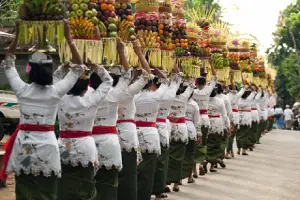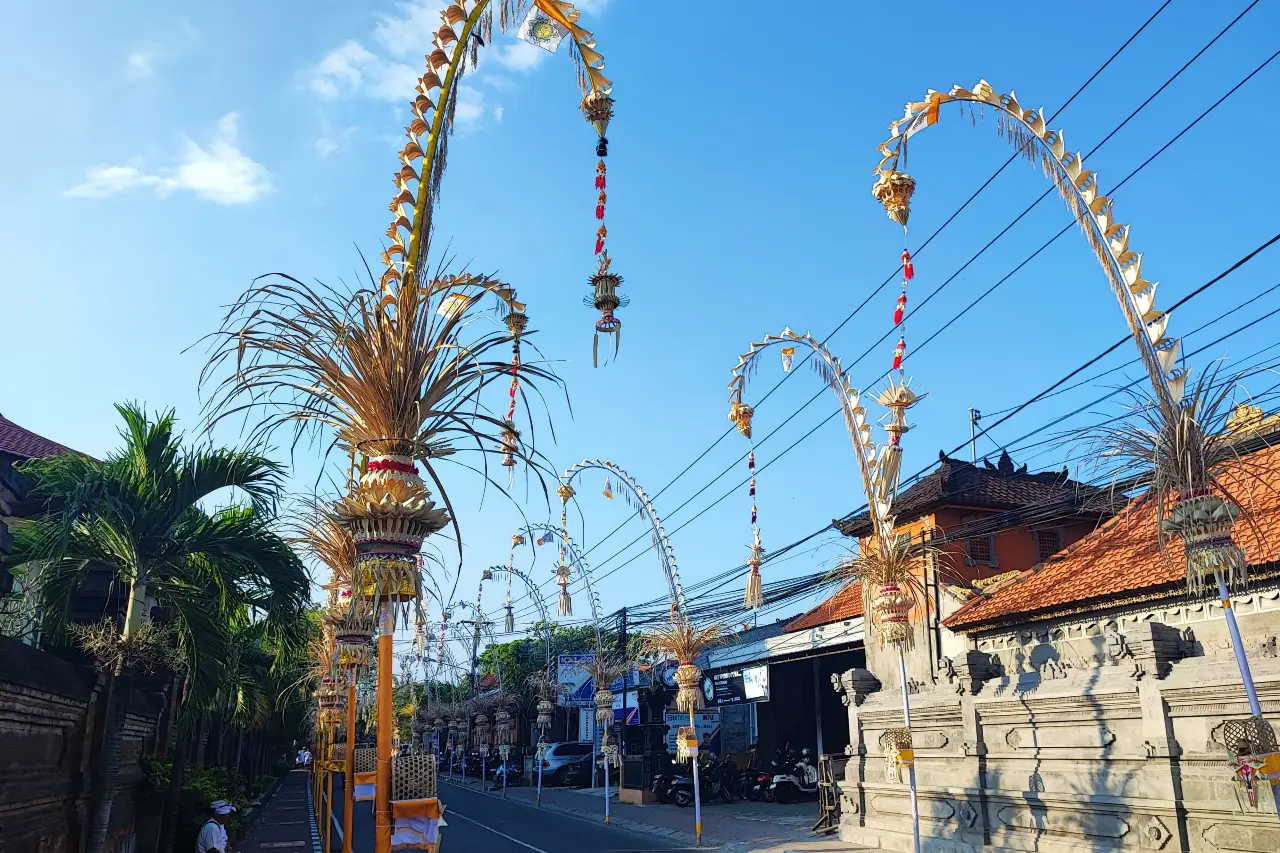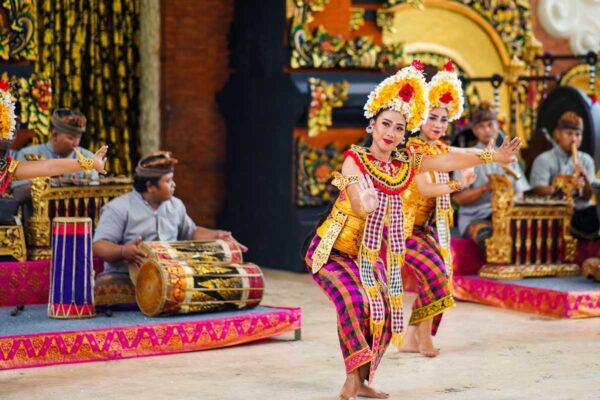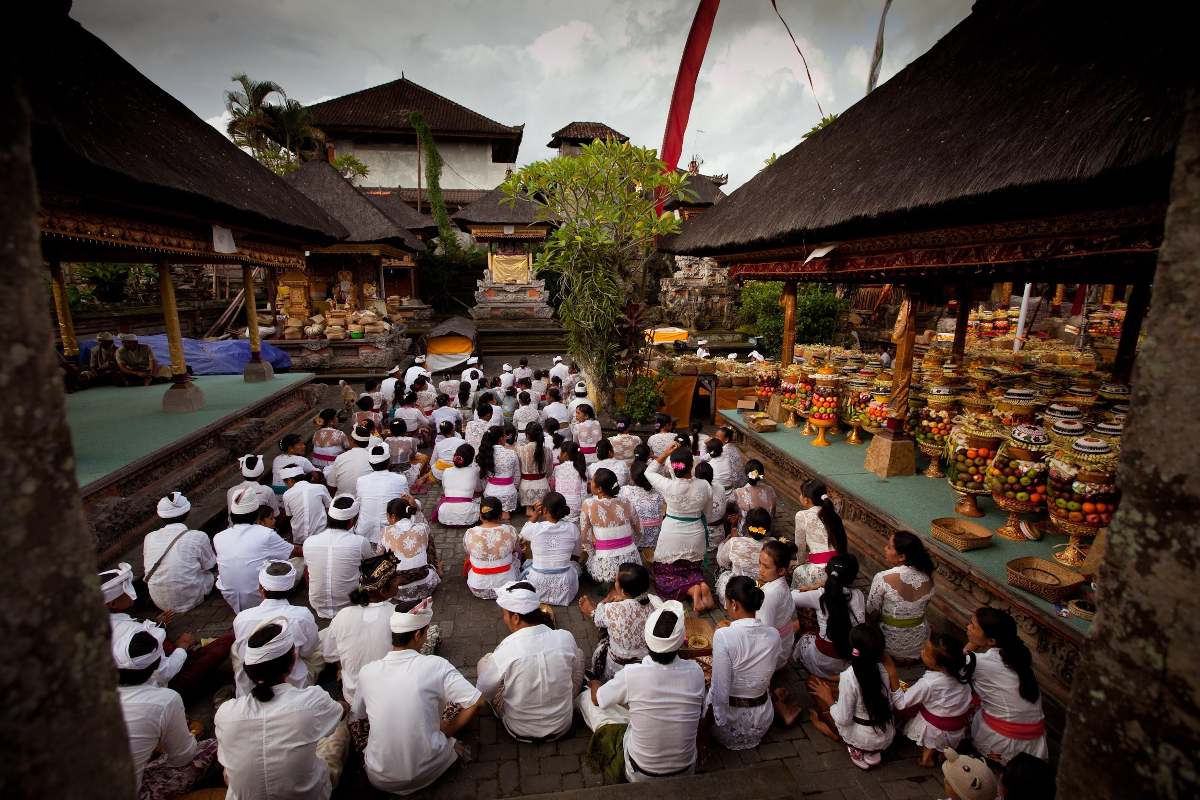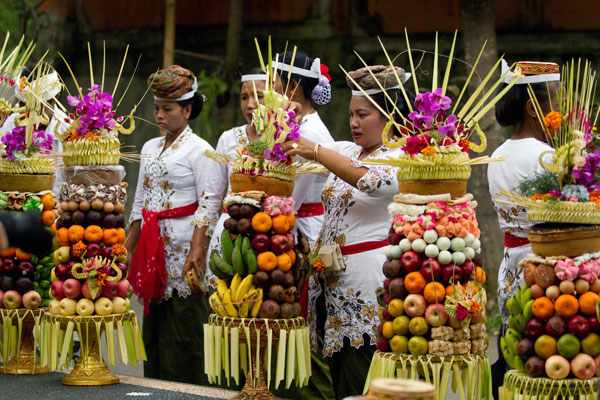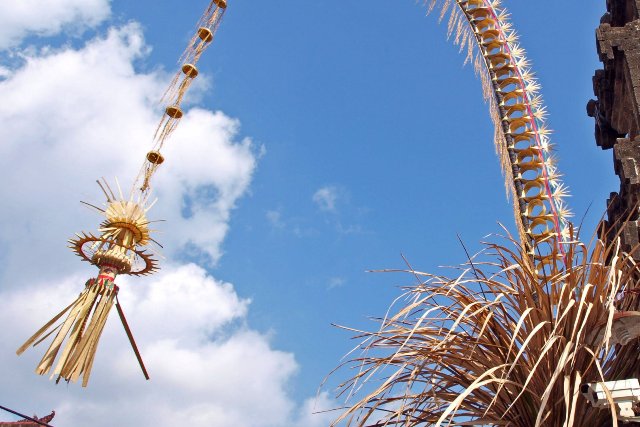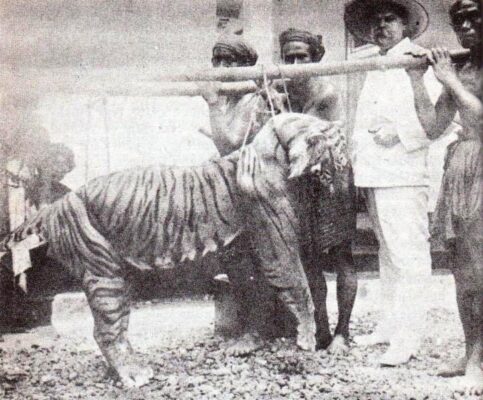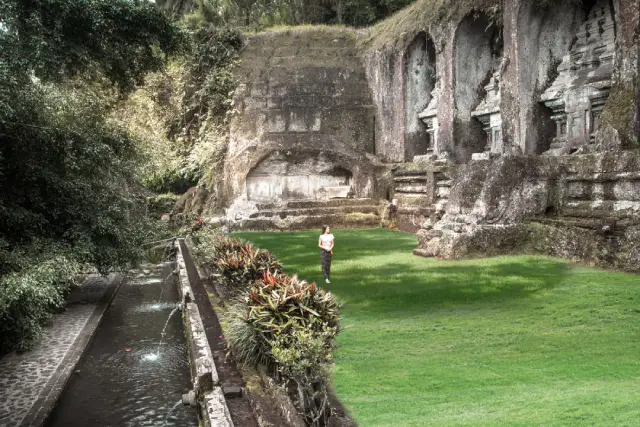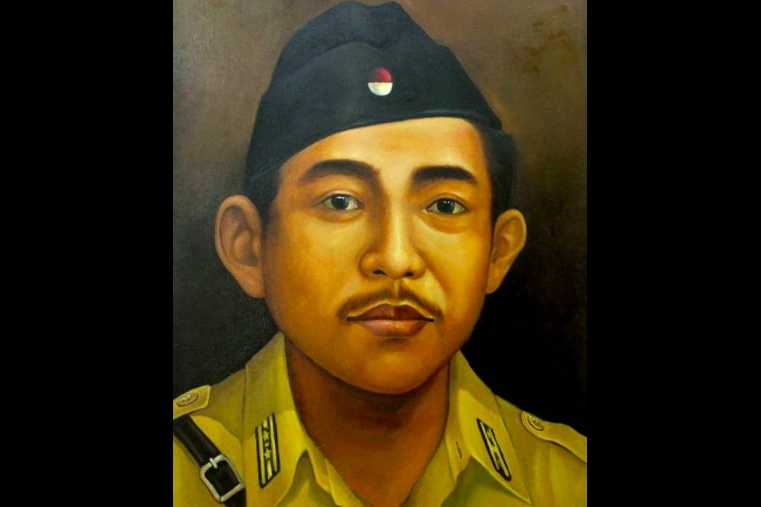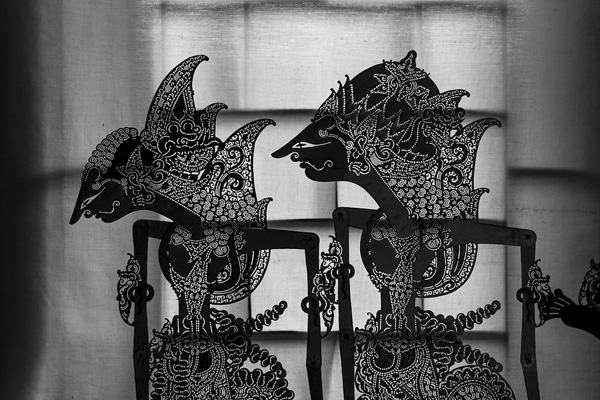Get Discounts with our Digital Tourist Discount Pass
Galungan: Bali’s Spiritual Celebration of Good Over Evil
Galungan is the most important religious festival in Balinese Hinduism. It marks the spiritual triumph of Dharma (goodness) over Adharma (evil). This isn’t just a holiday; it’s a 10-day period when the spirits of ancestors descend from the heavens to visit their former homes and families on Earth. The island transforms, focusing entirely on elaborate preparations, prayers, and community unity. This central belief ensures that all Balinese dedicate themselves to purity and vigilance during this sacred window.
What is the Significance of Galungan?
The festival cycle occurs every 210 days according to the intricate Balinese Pawukon calendar, meaning it takes place roughly twice per Gregorian year. The significance lies in the welcoming and honoring of ancestral spirits, reaffirming the spiritual connection that underpins all Balinese life. The entire 10-day period—culminating in Kuningan—is characterized by intensified devotion and family reunion.
Don’t miss Galungan when you are on the Island
For visitors, Galungan offers a unique insight into the spiritual and cultural life of Bali. The festival provides an opportunity to witness the island’s devotion to traditional practices and the communal spirit that pervades Balinese Hinduism. Visitors are often struck by the beauty of the penjor and the elaborate offerings, as well as the openness with which the Balinese share their cultural and religious practices.
During Galungan, tourists can expect to see ceremonies and rituals that are not commonly observed at other times of the year. Participating in or observing the preparations and celebrations is a privilege, offering a deeper understanding of the island’s culture and the importance of religion in daily life.
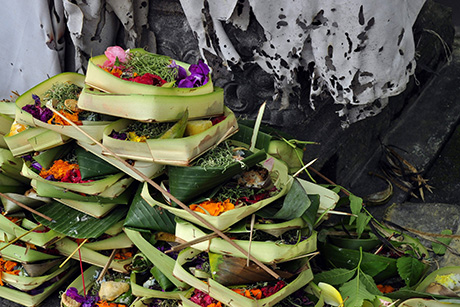
Galungan is a testament to Bali’s enduring cultural traditions and its people’s devotion to their spiritual beliefs. For those fortunate enough to be on the island during this auspicious time, Galungan offers a captivating and enriching experience, providing a glimpse into the soul of Bali.
How Can Visitors Observe Galungan Respectfully?
Galungan is a deeply religious event, and visitors are welcomed to observe the festivities with appreciation and sensitivity.
- Dress Modestly: Always wear appropriate attire—a sarong and sash—when attending temples and public ceremonies.
- Observe Quietly: Remain respectful during prayers. Never walk directly in front of a praying Balinese person, and avoid creating loud noise.
- Ask Permission: Always request permission, or give a polite gesture, before taking close-up photographs of individuals or ritual objects.
What is a Penjor and why is it important during Galungan?
The most recognizable feature of the celebration is the Penjor. This is a tall, gracefully curved bamboo pole decorated with palm leaves, fruits, flowers, and cakes that stands proudly outside every home and business. The Penjor holds deep symbolic meaning: its elegant arch represents Gunung Agung, Bali’s holiest mountain, and serves as an offering of gratitude to the gods for the Earth’s bounty. Riding through Bali’s villages during this time—particularly areas outside the main tourist hubs—offers a magnificent and unforgettable visual experience.
- Mountain & Earth: Its elegant arch represents Gunung Agung, Bali’s holiest mountain, while the serpent-like cloth wrapping symbolizes the Naga Basuki, the dragon of the earth. This signifies stability, prosperity, and the life-giving nature of the island.
- Gratitude: The Penjor serves as a physical offering of gratitude to the gods for the Earth’s bounty. Riding through Bali’s villages during this time offers a magnificent and unforgettable visual experience.
When are the Galungan and Kuningan dates in 2025 and 2026?
Galungan and Kuningan follow the 210-day Pawukon calendar. Here are the dates for the next three celebration cycles (Galungan Day is the start, Kuningan is the final day):
- April 23, 2025 – May 3, 2025
- November 19, 2025 – November 29, 2025
- June 17, 2026 – June 27, 2026
The Rituals: Three Days of Sacred Preparation
The intensity of Galungan is built through three specific days of preparation, ensuring the household is ritually and physically ready for the return of the ancestors:
- Penyekeban (3 Days Before): This marks the start of the spiritual process. Families gather ingredients and traditionally ferment fruit in clay pots, symbolizing the internal process of cultivating goodness (*dharma*) over temptation.
- Penyajahan (2 Days Before): This day is devoted to making Balinese cakes (*jaja*) and sweets. Spiritually, it is a time of intense introspection and self-correction, fortifying the individual against evil influences (*Adharma*).
- Penampahan (1 Day Before): This is the day of ritual slaughter (traditionally a pig or chicken) to prepare food, such as *Lawar* (minced meat and spice salad) and *Satay*, for the Galungan feasts. This is the last day for ritual cleansing before the ancestors arrive.
Manis Galungan: The Day After
The day immediately following Galungan, *Umanis Galungan* (or *Manis Galungan*), is dedicated to family visits and local travel. As there are no specific religious duties, Balinese families often use this day to embark on day trips to temples, visit extended family who live in other parts of Bali, or enjoy public spaces, resulting in busier than usual traffic on major tourist routes as the celebrations continue.
What is Kuningan in Bali? The Ancestors’ Farewell
Kuningan marks the culmination of the Galungan festival—the time when the ancestral spirits complete their visit and ascend back to their celestial abodes. Special offerings of yellow rice (*kuning* meaning yellow) are prepared and placed in small bowls made of coconut leaves, symbolizing gratitude for health and prosperity. All key blessings and offerings must take place before midday, as this is the traditional time the spirits are believed to ascend.


























